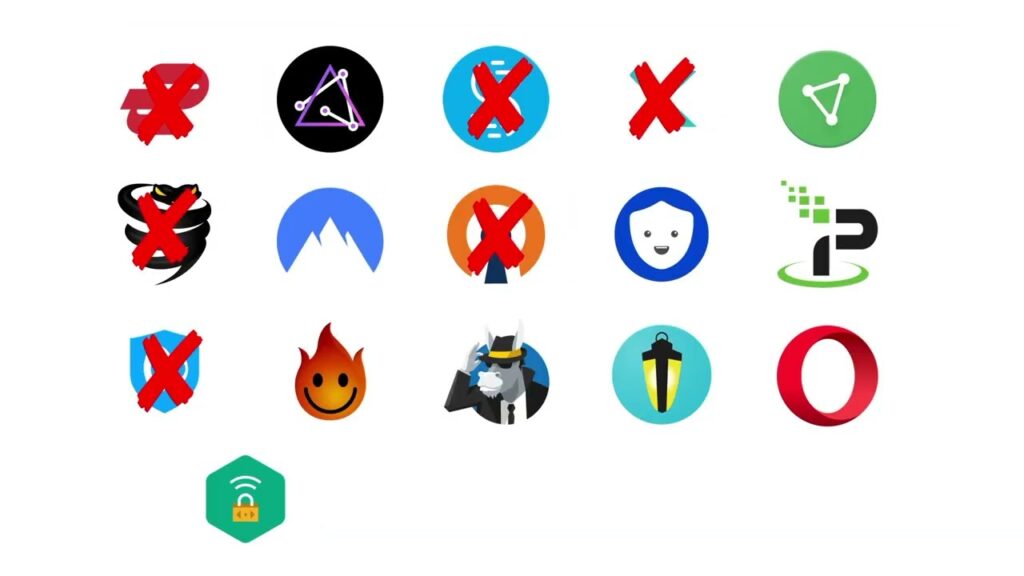Internet censorship has become a growing concern in recent years, as governments and organizations increasingly restrict access to online content. However, there are a variety of tools and techniques available to help users bypass these restrictions and regain access to the free and open internet. In this comprehensive article, we’ll explore the world of Internet censorship evasion tools, providing you with the knowledge and skills to navigate the digital landscape with freedom and confidence.
Understanding Internet Censorship Evasion Tools
Internet censorship evasion tools are software applications or technologies designed to circumvent online restrictions, allowing users to access blocked websites, content, and services. These tools can be particularly useful for individuals living in countries with strict internet regulations, journalists and activists who require unrestricted access to information, and anyone seeking to maintain their online privacy and security.
Exploring the Landscape of Internet Censorship Evasion Tools
The range of Internet censorship evasion tools available is vast and ever-evolving. From virtual private networks (VPNs) to Tor browsers, proxy servers to DNS tunneling, each tool offers its own unique features and capabilities. Understanding the strengths and limitations of these different solutions is crucial in selecting the right tool for your specific needs.
Evaluating the Effectiveness of Internet Censorship Evasion Tools
The effectiveness of Internet censorship evasion tools can vary greatly depending on the type of censorship in place, the level of internet monitoring, and the specific tool being used. Some tools may be more effective in bypassing certain types of censorship, while others may be better suited for maintaining online privacy and anonymity.
Utilizing Virtual Private Networks (VPNs) for Censorship Evasion

Virtual private networks (VPNs) are one of the most popular and widely-used Internet censorship evasion tools. By establishing a secure, encrypted connection between your device and a remote server, VPNs can effectively mask your online activity and bypass network-level restrictions.
Choosing the Right VPN Provider
When selecting a VPN provider, it’s essential to consider factors such as server locations, security protocols, logging policies, and user reviews. A reputable and trustworthy VPN can be a powerful tool in your censorship evasion arsenal.
Configuring and Using VPNs for Maximum Effectiveness
Properly configuring and using a VPN is key to ensuring its effectiveness in bypassing internet censorship. This includes understanding how to connect to different server locations, adjusting settings for optimal performance, and troubleshooting any connectivity issues that may arise.
Exploring Advanced VPN Features and Techniques
Many VPN providers offer advanced features and techniques, such as split-tunneling, multi-hop configurations, and obfuscation, which can further enhance their ability to evade internet censorship. Familiarizing yourself with these more sophisticated capabilities can help you tailor your VPN usage to your specific needs.
Leveraging The Tor Network for Anonymity and Censorship Evasion

The Tor network is a decentralized, anonymity-focused internet infrastructure that can be a powerful tool in the fight against internet censorship. By routing your internet traffic through a series of encrypted nodes, Tor can effectively conceal your online activities and bypass restrictions.
Understanding the Tor Network Architecture and Principles
Delving into the technical details of the Tor network, including its onion routing protocol, exit nodes, and the concept of dark web, can help you better appreciate its capabilities and limitations in the context of internet censorship evasion.
Accessing the Tor Network and Utilizing the Tor Browser
Accessing the Tor network typically involves using the Tor Browser, a specialized web browser designed to facilitate anonymous and secure internet browsing. Familiarizing yourself with the Tor Browser’s features and settings can optimize your experience in bypassing censorship.
Exploring Advanced Tor Network Techniques and Configurations
Beyond the basic Tor Browser, there are various advanced techniques and configurations that can further enhance the Tor network’s effectiveness in evading internet censorship. These include the use of bridges, pluggable transports, and multi-hop routing.
Utilizing Proxy Servers for Censorship Evasion
Proxy servers act as intermediaries between your device and the internet, allowing you to bypass network-level restrictions and access blocked content. Proxy servers can be an effective and relatively simple solution for internet censorship evasion.
Understanding Different Proxy Server Types and Protocols
There are various types of proxy servers, each with their own strengths and weaknesses in the context of censorship evasion. These include HTTP/HTTPS proxies, SOCKS proxies, and more specialized solutions like SSH and SSL/TLS proxies.
Selecting and Configuring Proxy Servers for Optimal Performance
Choosing the right proxy server and properly configuring it can make a significant difference in its ability to bypass internet censorship. Factors such as server location, bandwidth, and security should be carefully considered.
Exploring Advanced Proxy Server Techniques and Configurations
Beyond the basic proxy server setup, there are advanced techniques and configurations that can enhance their effectiveness in evading internet censorship. These include the use of proxy chains, rotating proxies, and obfuscation methods.
Leveraging DNS Tunneling for Censorship Evasion
DNS tunneling is a technique that allows you to circumvent internet censorship by encapsulating your internet traffic within the Domain Name System (DNS) protocol, effectively hiding it from network-level monitoring and restrictions.
Understanding the Principles of DNS Tunneling
Delving into the technical details of DNS tunneling, including the role of DNS servers, the process of encapsulating data, and the various protocols involved, can help you better appreciate its potential in the context of internet censorship evasion.
Selecting and Configuring DNS Tunneling Tools
There are several DNS tunneling tools available, each with its own features and capabilities. Carefully evaluating and configuring these tools can optimize their effectiveness in bypassing internet censorship.
Exploring Advanced DNS Tunneling Techniques and Configurations
Beyond the basic DNS tunneling setup, there are various advanced techniques and configurations that can further enhance its ability to evade internet censorship. These include the use of obfuscation, multi-level tunneling, and the integration of other censorship evasion tools.
Combining Censorship Evasion Tools for Enhanced Effectiveness
While each of the aforementioned Internet censorship evasion tools can be effective on their own, combining multiple tools and techniques can often result in a more robust and resilient solution.
Leveraging the Strengths of Different Censorship Evasion Tools
By understanding the unique capabilities and limitations of various censorship evasion tools, you can strategically combine them to create a multi-layered approach, each tool complementing the others and providing a more comprehensive solution.
Configuring and Integrating Censorship Evasion Tools
Properly configuring and integrating multiple censorship evasion tools can be a complex process, but the rewards in terms of increased effectiveness and versatility can be substantial. This may involve techniques such as VPN-over-Tor, proxy-over-VPN, and the utilization of advanced features like split-tunneling.
Adapting Your Censorship Evasion Strategies to Changing Circumstances
As internet censorship methods evolve, so too must your censorship evasion strategies. Staying informed about the latest developments, monitoring the performance of your chosen tools, and being willing to adapt your approach can ensure that you maintain your freedom of access in the face of ever-changing online restrictions.
Frequently Asked Questions (FAQs)
What is the best Internet censorship evasion tool?
There is no single “best” Internet censorship evasion tool, as the effectiveness of different tools can vary depending on the specific type of censorship in place, your location, and your individual needs. However, some of the most widely-used and effective tools include VPNs, the Tor network, proxy servers, and DNS tunneling. It’s often recommended to use a combination of these tools for maximum effectiveness.
How do I choose a VPN provider for Internet censorship evasion?
When selecting a VPN provider for Internet censorship evasion, it’s important to consider factors such as the provider’s server locations, security protocols, logging policies, and user reviews. Look for a VPN that has servers in multiple countries, strong encryption, a strict no-logs policy, and a proven track record of successfully bypassing censorship.
Is using Tor safe for Internet censorship evasion?
The Tor network is generally considered a safe and secure way to bypass Internet censorship, as it provides a high level of anonymity and encryption. However, it’s important to understand the limitations of Tor, such as potential vulnerabilities and the fact that your traffic is still routed through Tor exit nodes. Combining Tor with other censorship evasion tools can further enhance your online security and privacy.
Can proxy servers effectively bypass Internet censorship?
Proxy servers can be an effective tool for bypassing Internet censorship, as they act as intermediaries between your device and the internet, masking your true IP address and allowing you to access blocked content. However, the level of effectiveness can vary depending on the type of proxy server, its location, and the specific censorship methods in place. It’s important to carefully select and configure a reliable proxy server for optimal performance.
How can I use DNS tunneling to evade Internet censorship?
DNS tunneling works by encapsulating your internet traffic within the Domain Name System (DNS) protocol, effectively hiding it from network-level monitoring and censorship. To use DNS tunneling for Internet censorship evasion, you’ll need to select and configure a specialized DNS tunneling tool, which will allow you to route your internet traffic through a secure and uncensored DNS server.
Conclusion
In an era of increasing internet censorship, the tools and techniques outlined in this article can empower you to reclaim your digital freedom and access the open and unrestricted internet. By understanding the strengths and limitations of various Internet censorship evasion tools, you can strategically combine them to create a robust and adaptable solution tailored to your specific needs.
Remember, the fight against internet censorship is an ongoing battle, and staying informed about the latest developments and techniques is crucial. Regularly reevaluating your censorship evasion strategies and being willing to adapt to changing circumstances will ensure that you maintain your ability to access the information and resources you need, regardless of the obstacles placed in your path.
Embrace the power of these Internet censorship evasion tools and unlock the full potential of the digital world. Take control of your online experience and join the global movement to preserve the principles of a free and open internet.

